
Five reasons why young workers are getting a raw deal
Every November, the TUC Young Workers Month highlights the issues young workers face and explains how being in a trade union can help.
There are many reasons why young workers are suffering at the moment. Here’s five for starters:
1. Higher job insecurity
Employment rates may have gone up in recent years, but younger workers are still much more likely to be in insecure or low-paid jobs than any other age group.
Over half of those on zero-hour contracts and almost 6 in 10 casual workers are under 34 years old, with most of the latter aged 18 to 24 years old:
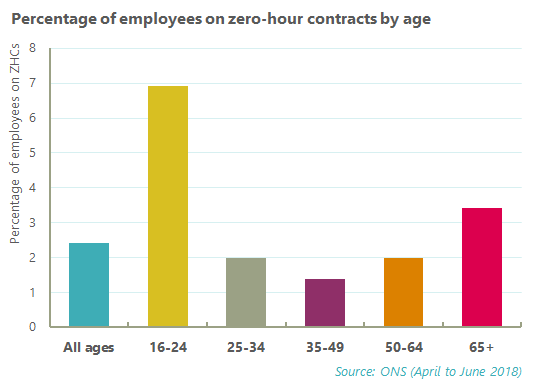
So whatever the statistics say about high employment, the fact is that young people are increasingly stuck in precarious work – and with it a loss of important workplace rights, underemployment and lower job satisfaction.
2. Plummeting pay
It used to be the case that every generation earned more than the one that came before, but that’s no longer true.
Regardless of growing employment rates, all workers have been hit by a real wage squeeze since 2008.
But young workers have bit hit especially hard, with those aged 22 to 29 now £15 per week worse off than ten years ago, and 18 to 21-year-olds earning a staggering £45 per week less than their counterparts a decade ago:
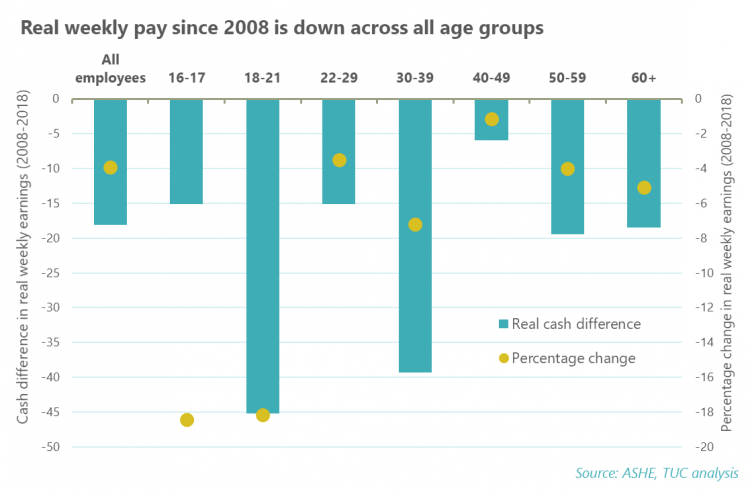
If we look back further, it gets even worse.
According to our research, the generational pay gap between those aged 21 to 30 and older workers has widened significantly over the past two decades .
And Resolution Foundation figures also show that workers born between 1981 and 2000 are earning much less than their generation X counterparts at the same age .
3. Qualifications not paying off
If you work hard and get the right skills, you’re supposed to progress out of insecure work and into better pay.
But the structural issues facing young workers now aren’t the same as in previous decades.
For example, young grads today don’t receive as significant an uplift in their earnings as those in 1998 did.
In fact, people with degrees in the 21 to 30 age group have experienced a fall in wages return over the past two decades:
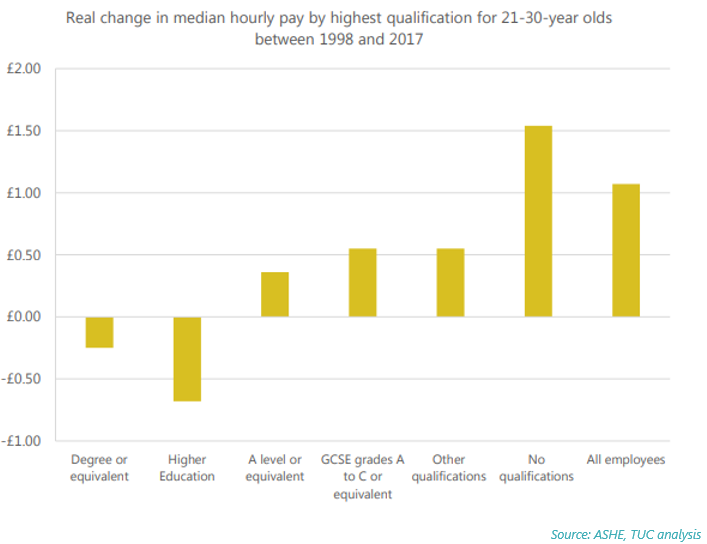
Part of this can be explained by the public sector pay restraint since 2008, because jobs like doctors and teachers tend to have a high proportion of graduates.
But that’s not the whole story. Another aspect is the mismatch of skills to available jobs, with a large number of graduates working in non-graduate jobs .
4. Forced to move for better pay
Everyone should have access to a good job, decent pay and the skills they need to get on in life, wherever they were born.
But pay progression for young workers is now strongly linked to whether they move to a big city for work, with London bringing the highest boost:
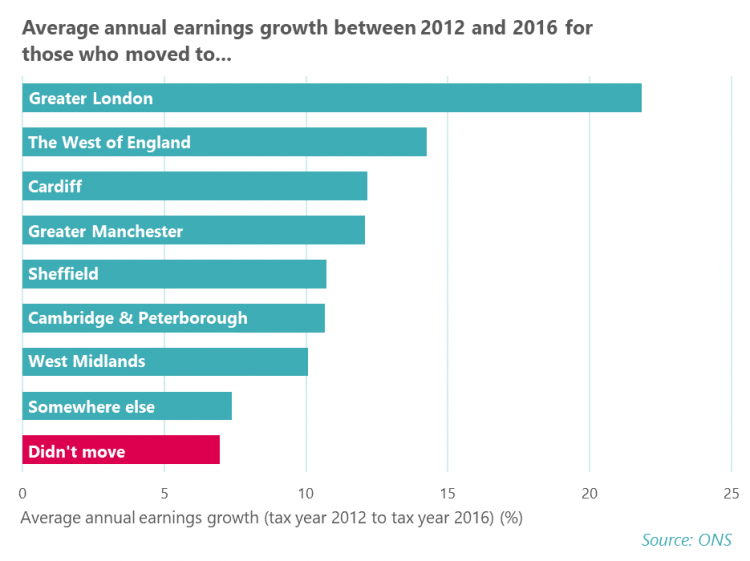
Yet most young people don’t move to London, or other big cities, for work.
In fact, 81 per cent of the young workers included in a recent ONS study stayed in the same local authority between 2012 and 2016. Only 2.5 per cent moved to London, and less than 1 per cent moved to Manchester or Sheffield.
Quite apart from uprooting yourself, moving across the country can be difficult without family support to help with the astronomical rents in the UK’s big cities.
No worker should have to move to London simply to get a pay rise, which is why we need great jobs in every part of the country.
5. Falling union membership
Despite a small rise in the percentage of young workers who are union members, trade union membership is in decline across almost all age groups:
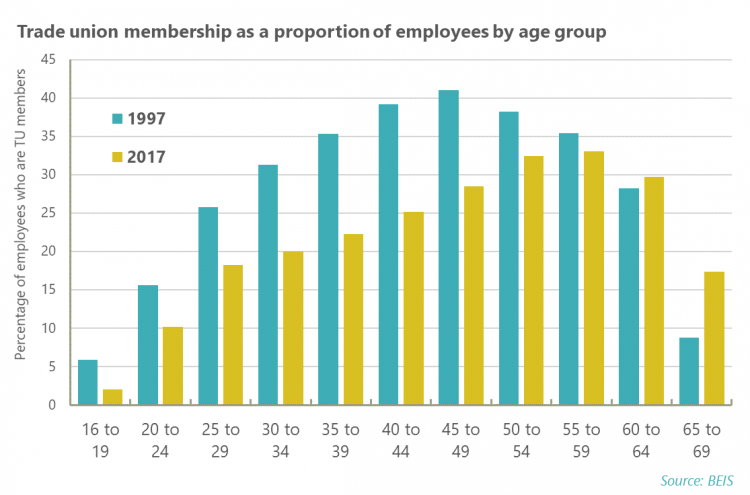
We urgently need to reach more young workers and get them organising in the workplace.
Because while unions can help young workers improve their precarious position in the labour market and their poor experiences at work , we also need skilled, active and enthusiastic young people to keep winning for working people in the future.
Stay Updated
Want to hear about our latest news and blogs?
Sign up now to get it straight to your inbox

